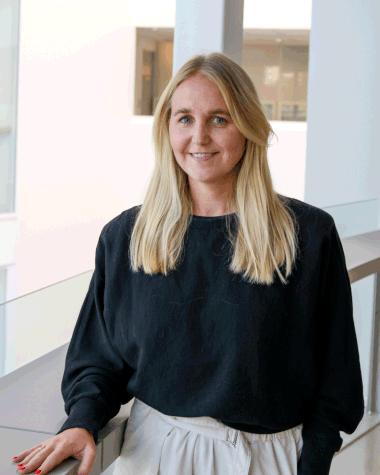Enid Leren Myhre is defending her dissertation for the degree philosophiae doctor (PhD) at the University of South-Eastern Norway.

The doctoral work has been carried out at the Faculty of Health and Social Sciences at campus Vestfold.
You are welcome to follow the trial lecture and the public defence. You can also watch it in Zoom.
Summary
The thesis is about early labour (the latent first stage or the latent phase of labour) when healthcare staff expects women to be at home. It reveals that women want support and information in early labour, and that a website can be a suitable way of providing this.
There is evidence that early labour is challenging for women, and several previous studies have reported dissatisfaction with the care given in early labour before admission to hospital. A mismatch between the woman's perceived need to be cared for, and midwives wanting to prevent too early hospital admission may cause conflicts in early labour. Easy access to relevant and reliable information can be a way to support and strengthen the women, and at the same time provide a basis for common understanding.
A website (Latens.no) was developed, and user tested during the project, and this site was then used to investigate whether access to information in early labour can improve both the experience of early labour and subsequent labour characteristics.
Through three substudies, the thesis demonstrates how easy access to reliable information at the right time, together with recognition and support from midwives and partners, can reassure women in early labour. The use of the think-aloud method helped to obtain detailed feedback, confirm the user-friendliness of the website, and gave suggestions for improvements. Despite this work, we were unable to measure an improved experience of early labour after introducing the website. However, women who had access to the website were admitted to the maternity ward with greater progression in labour than those in the pre-intervention group. Moreover, the post-intervention group received less oxytocin (drug to stimulate contractions) during labour. Even though we were unable to detect a significant effect on women's experience of early labour, findings from the thesis indicate that user participation and the use of the think-aloud method are useful in the development of digital resources.
